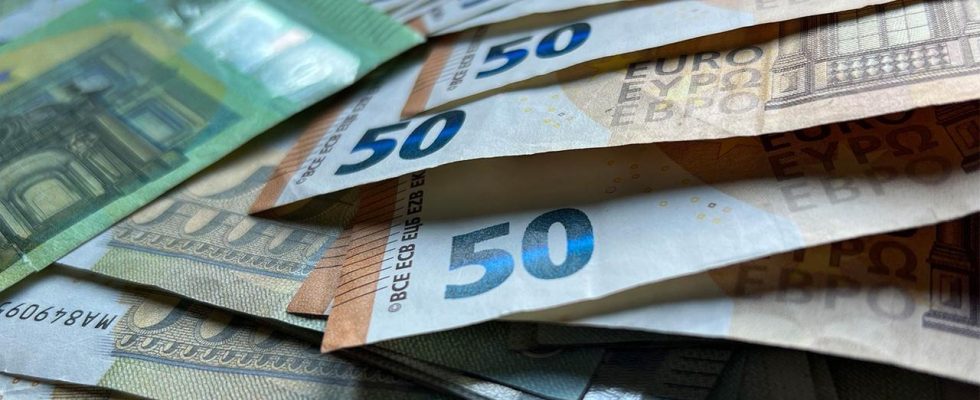Many overnight money savers don’t notice much about the increased key interest rates. Every fifth bank pays either zero or at best low interest rates. Volksbanks and savings banks in particular are cautious.
The deposit rate of the European Central Bank (ECB) has been 4.0 percent since September last year. But daily money savers in Germany can only benefit to a limited extent from this. According to a current interest rate analysis by the comparison portal Verivox, 21 percent of banks and savings banks in Germany pay either no interest at all or at best low interest rates of 0.01 to 0.25 percent on overnight money. Savers receive 1.0 percent or more at just 30 percent of all banks.
For the comparison, the conditions of 758 banks and savings banks in Germany were evaluated.
Zero and low interest rates, especially at Volksbanks
It also became apparent that, especially at regional cooperative banks, customers still often only receive zero or low interest rates on their daily money. These include the local Volks- and Raiffeisenbanken as well as the PSD and Sparda banks. Of a total of 353 banks evaluated in this segment, around 25 percent only pay interest between zero and 0.25 percent. The share at savings banks is somewhat lower at 21 percent.
“Of course, regional credit institutions with an expensive branch network cannot offer the highest interest rates in the entire market,” said the managing director of Verivox Finanzvergleich GmbH, Oliver Maier. “But from the savers’ point of view, it is difficult to understand that in the current historic phase of high interest rates, the vast majority of Volksbanks and savings banks are not even making one percent.” On average, savings banks and Volksbanks currently pay an average of 0.62 percent interest on overnight money.
Daily interest rates only increase slightly
The average across all banks active nationwide is significantly higher: According to Verivox calculations, savers who put 10,000 euros in their current account currently receive an average of 1.75 percent interest. That’s a full percentage point more than in March 2023; Overnight interest rates have continued to rise in recent months.
However, the time of really big increases seems to be over, the curve is flattening: since last December (1.71 percent), the average daily interest rates have only increased by two decimal places.
Significantly less interest on fixed-term deposits
In contrast, the average interest rates for fixed-term deposits have already fallen noticeably in the past three months. According to the Verivox analysis, fixed-term deposits available nationwide with a term of two years currently yield an average of 2.91 percent. For comparison: at the beginning of December it was 3.36 percent. The interest rates for five-year fixed-term deposits have fallen even further – from 3.17 percent in December to the current 2.63 percent.
Fixed-term deposit providers have already clearly priced in the prospect of falling interest rates in their offers. The European Central Bank (ECB) is unlikely to decide on any changes to key interest rates at its meeting today. However, market observers expect a first downward move in interest rates at the June meeting.
Markets are pricing in fewer interest rate cuts by the end of the year
While the media focuses on the main refinancing rate, savers are particularly interested in the deposit interest rate, which has been 4.0 percent since September 2023. This is the interest rate at which banks can “park” excess liquidity with the ECB until the next business day. In a sense, it is the “benchmark” for overnight interest rates.
Overall, the futures markets are currently pricing in three interest rate cuts of 25 basis points each by the end of the year. The deposit rate would therefore fall from 4.0 to 3.25 percent. Expectations of interest rate cuts had recently been put into perspective again: at the beginning of the year, the markets had expected six interest rate cuts to 2.75 percent by the end of 2024.
With information from Angela Göpfert, ARD financial editorial team.
Sebastian Schreiber, HR, tagesschau, March 7, 2024 11:39 a.m

